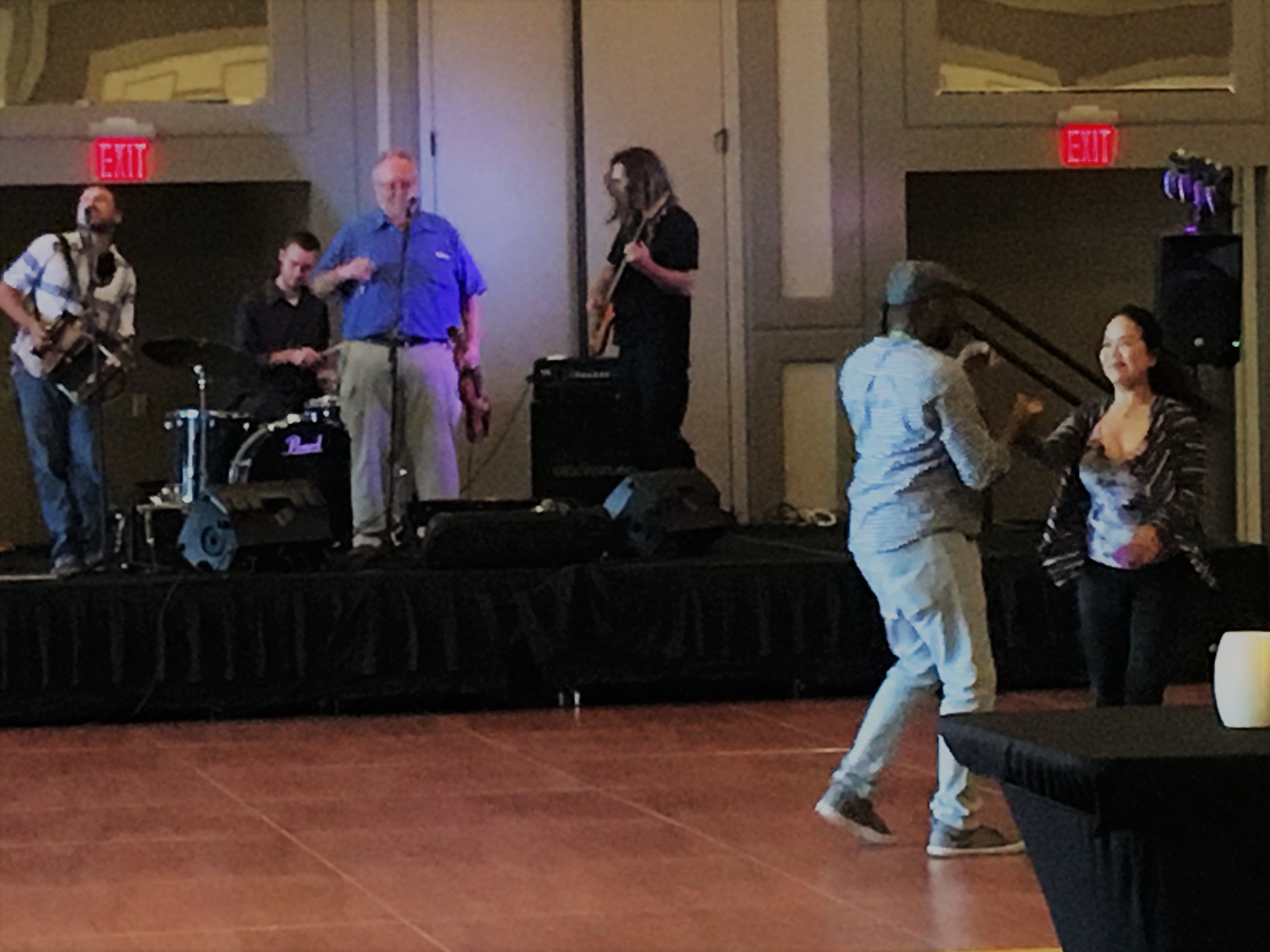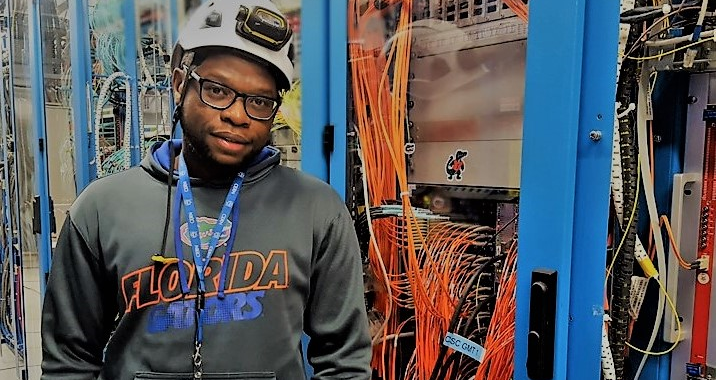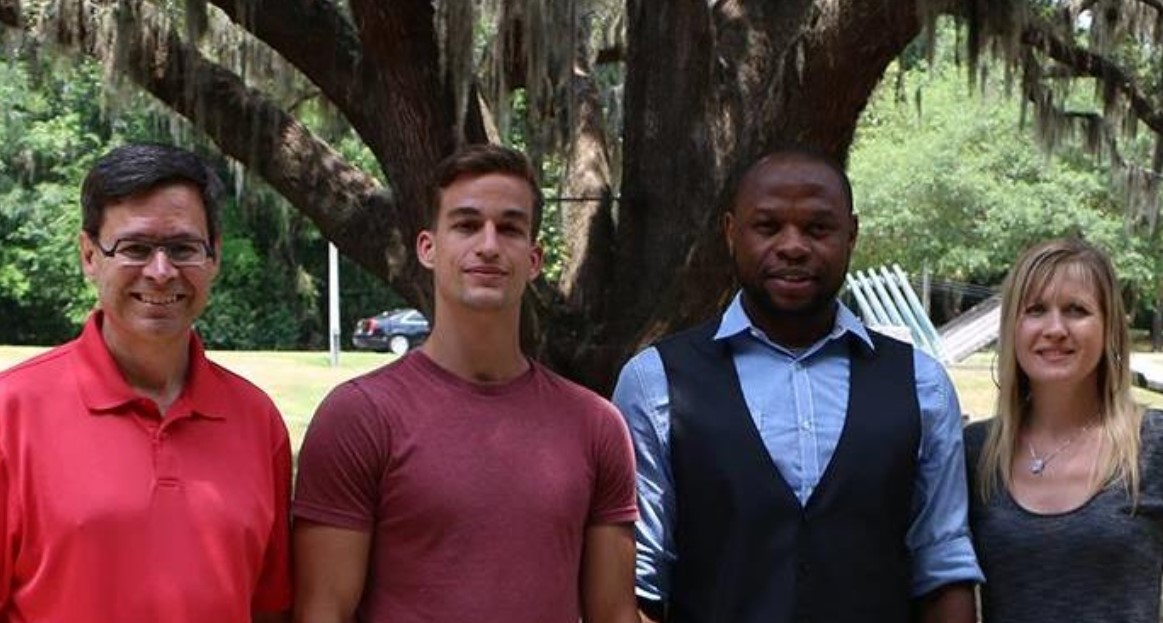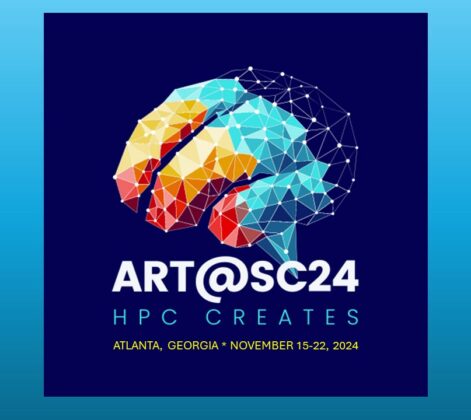By Guest Blogger Bobby Hollingsworth (V-Tech/Harvard), with assistance from Erica Corder (V-Tech)
David Ojika plans to use his expertise in high performance computing (HPC) to collaborate with scientists across disciplines and the world. Ojika, a fourth-year computer engineering Ph.D. candidate at the University of Florida, received his first master’s degree in electrical engineering from California State University Los Angeles and a second in computer engineering from the University of Florida. He is also an XSEDE Student Campus Champion.
Ojika was among 66 students from dozens of U.S. colleges and universities who attended the Practice & Experience in Advanced Research Computing (PEARC17) conference last week. His PEARC17 participation was supported by Google, Micron Foundation and the Science Gateways Community Institute (SGCI) via their donations to STEM-Trek Nonprofit.
An internship with Intel stimulated Ojika’s interests in high performance computing (HPC) and deep-learning. As a Xeon Phi fellow, Ojika had the opportunity to work with big data and gained an appreciation for multidisciplinary computational applications. These machine learning algorithms have the potential to solve challenging data-driven problems for groups such as experimental physicists.
Many research centers are generating too much data to be stored. For example, the Large Hadron Collider (LHC) complex at CERN in Geneva, Switzerland generates so much data that it must be analyzed in real-time. Scientists identify useful results for long-term storage, but parsing through the data can be cumbersome and requires very low-latency systems to keep up with the large influx. Ojika spent one month at the LHC complex last November to assess ways that machine learning techniques could aid in data management and analysis (Ojika’s feature photo was taken at CERN). Using deep neural networks, his new analysis pipeline could result in the capture of ten times more useful data, leading to new hypotheses and discovery.
To integrate the computational sciences with applied physics in his graduate work, Ojika is co-advised by Dr. Darin Acosta and Dr. Ann Gordon-Ross in the physics and electrical/computer engineering departments at UF, respectively. Dr. Gordon-Ross described David as “one of the most hardworking, dedicated, passionate, and creative students” she has ever taught.
“I honestly do not know how he manages to devote so much time to so many projects, and still produce such high-caliber results,” Gordon-Ross said. “I am lucky to have him as a student.”
At PEARC17, Ojika interacted with researchers who use computational methods for a diverse set of scientific problems. “PEARC17 brought together experts from many different disciplines under one HPC community,” Ojika said. “It’s interesting to see how problems that I face are being addressed from a different perspective by scientists and engineers from a variety of other domains.”
You can find Ojika’s PEARC17 paper titled, “Accelerating High-energy Physics Exploration with Deep Learning,” on the Association for Computing Machinery web site.
Ojika is currently pursuing an internship at Microsoft, working in the company’s research and AI group, and exploring ways of using FPGAs (or programmable accelerators) to further speed up data-intensive applications. After completing his Ph.D., Ojika aims to work with big-data in industry, and serve as research/adjunct faculty at a university where he can continue his cutting-edge work with HPC while educating the next generation of computational scientists.

Ojika enjoyed dancing with PEARC17 Mentor and XSEDE Campus Champion Liwen Shih (CS Professor at the University of Houston at Clear Lake)
_____
The PEARC17 Student Program was chaired by Alana Romanella (Virginia Tech), with committee members: Kate Cahill (Oklahoma State University); Peter Enstrom (NCSA); Ricardo Gonzalez (University of Puerto Rico/Mayagüez); Elizabeth Leake (STEM-Trek); Melissa Romanus (Rutgers); Semir Sarajilik (Georgia State University); and Ester Soriano (NCSA).






Awesome achievement! The sky is your starting point bro